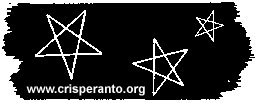Celibacy is a word most often used in connection with the priesthood. Mr. Webster, in his famous dictionary, gives its meaning as the state of being unmarried, but we have all become much more outspoken and nastier than we were in Mr. Webster's day. We know that the state of being unmarried does not necessarily involve chastity — a more exalted state.
In a film entitled Priest, one prelate was having a shameless affair with his housekeeper and the other, newly arrived, made himself comfortable in the vicarage, took off his turned-around collar and made straight for the nearest notorious gay bar. The film was, of course, absurd. If one arrived in a small town to work for McDonald's, one would not be as indiscreet as that — let alone if one had arrived to work for you-know-who.
Why is God so against all forms of self-gratification? There seems to be no reasonable answer, but we all accept that he is. I would think that if a man were physically satisfied, he could concentrate his attention on "higher" things, whereas if he were not, he would think about nothing but his continual battle with the flesh.
When Mr. Clinton appointed Dr. Joycelyn Elders to the post of surgeon general, she recognized that preoccupation with sex is a particularly onerous problem in the schools. The goodly doctor also said that it wouldn't hurt for adolescents to be taught about masturbation in the classroom. Mr. Clinton was shocked. His surgeon general was sacked.
Upper school was certainly where it all started for me. I spent most of those four miserable years slaving over knowledge that would prove useless, and (like the other boys) indulging in the solitary pastime of masturbation. It was such a dark subject, so surrounded by shame and mystery. We were all terrified of the consequences. How much was too much? Would one go mad? Could other people tell if one indulged? And so on.
No one was there to allay these fears, to say that it was the least complicated, the cheapest form of self-gratification and that, as has already been noted, one doesn't have to look one's best. What more is there to say?
And if you do not enjoy having sex with yourself, why fly to the opposite extreme? Why get married? For human beings, marriage is such an unnatural state. If you want monogamy, it has been said, you should marry a swan.
When Miss Streisand stated that the people who need people are the luckiest people in the world, she was correct to use the plural and thereby avoid the common misconception that people who need only a single person are the luckiest people. If you allow anyone into your life who can claim the dreary role of "best friend" — almost as threatening as "wife" — he will weigh you down with guilt. When you meet him in the street he will say with feigned surprise, "Oh, you are still here. Naturally, I thought you were dead since you didn't telephone me all last week."
In view of these snags, it is well to dispose our interest horizontally, to cover the whole human race, rather than in depth so as to burden some single unfortunate person. For this it is necessary to live in a large city so that any number of strangers are available.
People are always asking me how I deal with bores but, when we say of someone that he is boring, it is often ourselves that we criticize. It means that we haven't presented ourselves to the public as a shallow, wide-open vessel into which strangers can pour anything. I used to say that no one is boring who will talk about himself, but I was laughed to scorn by the press, so now I have revised my statement. I say no one is boring who will tell you the truth about himself. I mention all this to answer the question often asked of the celibate: "Aren't you lonely?"
Those people are lonely who don't know what to do with time when they are alone. I do nothing. I am a dab hand at doing nothing. I do not subscribe to the Protestant ethic of needless activity. Before I do anything — before I can even lift a finger — I always ask myself one question, "Can I possibly get out of this?" and if I can, I do.
And what does one think about when there is no one else to consume his thoughts? He thinks about himself, which is the only thing that he can change by merely thinking about it. And he must be alone to do this. How can anyone decide to work on his public image if, the moment he opens his eyes, an all-too-familiar voice beside him says, "And another thing . . ."
The last words on celibacy — or the advantages of onanism — must belong to that wonderful but neglected writer, Miss Katherine Mansfield. In her diary, there is an entry that says: "On living alone. If, by some awful chance, I find a hair in the butter, at least it is my own."
Origianlly appeard at Nerve in 1997.

